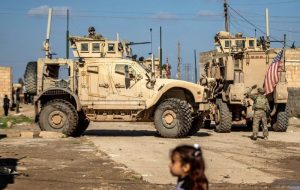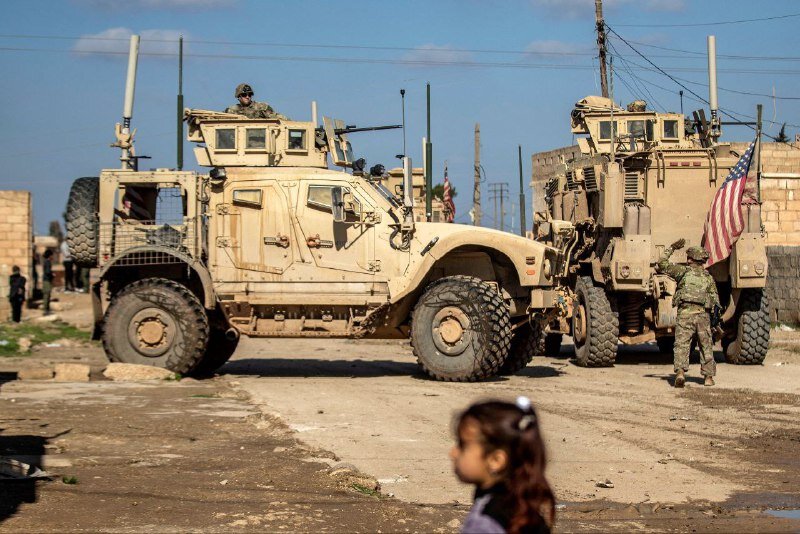US bombards alleged Daesh targets in Syria
TEHRAN – The U.S. Central Command (CENTCOM) announced a huge number of airstrikes against alleged Daesh targets in Syria. CENTCOM said a series of precision air raids on December 8 targeted over 75 Daesh camps and operatives in the central part of Syria. In the largest operation in years, advanced U.S. Air Force assets, including


TEHRAN – The U.S. Central Command (CENTCOM) announced a huge number of airstrikes against alleged Daesh targets in Syria.
CENTCOM said a series of precision air raids on December 8 targeted over 75 Daesh camps and operatives in the central part of Syria.
In the largest operation in years, advanced U.S. Air Force assets, including B-52s, F-15s, and A-10s, were utilized to “disrupt, degrade, and defeat Daesh, in order to prevent the terrorist group from conducting external operations and to ensure that Daesh does not seek to take advantage of the current situation to reconstitute in central Syria,” the U.S. CENTCOM said in a statement.
General Michael Erik Kurilla emphasized that CENTCOM “will not allow Daesh to reconstitute and take advantage of the current situation in Syria,” warning against any entities partnering with or supporting the terrorist group.
The U.S. raids came in the immediate aftermath of the Syrian government’s swift collapse by a mixture of armed groups with opposing interests.
CENTCOM failed to provide any credible evidence that the targets of the strikes were “Daesh camps and operatives”.
America has refrained from striking the terrorist group since its capabilities in Syria were widely degraded following the years-long joint Iranian-Russian campaign in support of the Syrian Army.
The U.S. claims to have around 900 troops in Syria, though reports indicate that number has increased this year.
Analysts have questioned the timing of the attacks, arguing if the U.S. mission in Syria is aimed at preventing Daesh from gaining power, why were these airstrikes against the terrorists not waged earlier?
Small cells of the terrorist group have been holed up in central Syria close to the areas under the control of the U.S. in the country. Russia has previously accused America of protecting the terrorists in a bid to keep the future of Syria in a state of insecurity.
In May last year, a Russian intelligence service officer, Sergey Naryshkin, accused the U.S. of training Daesh terrorists to carry out sabotage and terrorist attacks in both Syria and Russia.
Naryshkin said at the time that the U.S.-occupied al-Tanf base on the Syria-Jordan-Iraq border was being used to train Daesh terrorists.
The U.S. has been occupying mostly northeastern Syria for the best part of the past decade.
Critics of the occupation have accused the United States of depriving Syrian state institutions of accessing fertile lands and oil fields in the northeast.
In addition to sanctions imposed on Damascus, the measures have left Syrians in a dire humanitarian situation, stripping state institutions of much-needed oil revenue for reconstruction efforts, humanitarian supplies for households, and salaries to civil workers as well as the Syrian army.
Experts say most of the Syrian oil revenue is being spent by Washington to pay for the U.S. military presence in Syria.
This amount of oil revenue looted by the U.S. is estimated to be in the billions of dollars.
The latest widespread airstrikes came after days of lightning offensive by armed groups that ultimately led to the downfall of Syria’s longtime leader, Bashar al-Assad.
Kurilla added that “all organizations in Syria should know that we will hold them accountable if they partner with or support Daesh in any way.”
The CENTCOM statement adds fuel to widespread speculation that America kept Daesh under its control during the era of former President Bashar al-Assad to serve Washington’s security interests.
